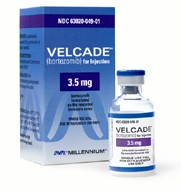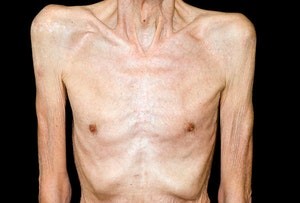
Recently Diagnosed or Relapsed? Stop Looking For a Miracle Cure, and Use Evidence-Based Therapies To Enhance Your Treatment and Prolong Your Remission
Multiple Myeloma an incurable disease, but I have spent the last 25 years in remission using a blend of conventional oncology and evidence-based nutrition, supplementation, and lifestyle therapies from peer-reviewed studies that your oncologist probably hasn't told you about.
Click the orange button to the right to learn more about what you can start doing today.
- You are here:
- Home »
- Blog »
- Multiple Myeloma »
- Multiple Myeloma Diagnosis- Sleep Apnea?
Multiple Myeloma Diagnosis- Sleep Apnea?
“It’s potentially a very potent driver of cancer aggression (sleep apnea),” she says. “It’s so simple. It had such a profound impact, but it’s potentially so treatable.”
When we get a multiple myeloma diagnosis we can’t help but wonder what caused our MM diagnosis? Sleep apnea is yet another modifiable lifestyle factor that, according to the research below, can increase the aggressiveness of multiple myeloma (MM). Or not.
Multiple myeloma is an incurable form of blood cancer. Everyone can agree on this. The usual therapy plan is to undergo one or more aggressive chemotherapy regimens, achieve a stage of remission, relapse, more chemo, remission, relapse…until the MMer reaches MDR or multi-drug resistance and nothing more can be done. This means that the MMers myeloma no longer responds to any of the chemotherapy regimens that have been approved by the FDA.
Toxic therapies, by themselves, will not manage your MM in a way that balances quantity with quality of life.
As suspect as I am of toxic therapies, even I understand that MMers have to undergo FDA approved chemotherapy on occasion in order to manage one’s MM. My experience however, is that MMers who undergo too much toxicity reach MDR status in a weakened state.
The articles linked below talk about a driver of MM aggressiveness that can be managed without toxicity. Sleep apnea is one of many drivers of MM aggressiveness that can be managed through non-toxic therapies.
What would you do if your oncologist prescribed nutrition, sleep, exercise, sauna (whole-body hyperthermia) as well as other therapies for you, the newly diagnosed MMer, in addition to chemotherapy and/or radiation? I’m not talking about alternative thinking, I’m talking about combining conventional chemotherapy with evidence-based non-toxic therapies to enhance the MMer’s quality of life in addition to his/her length of life.
If you’d like to learn more about evidence-based non-toxic therapies to enhance conventional MM therapies, scroll down the page, post a question or comment and I will reply to you ASAP.
Multiple Myeloma – Sleep, Insomnia
Thank you,
David Emerson
- MM Survivor
- MM Cancer Coach
- Director PeopleBeatingCancer
Recommended Reading:
- Multiple Myeloma-Adverse Events Since 1994-My Cancer Story
- Autologous Stem Cell Transplant Ages Multiple Myeloma
- Multiple Myeloma Relapse
Iowa research shows connection between sleep apnea, deadly blood cancer
“Researchers at the University of Iowa have discovered a link between sleep apnea and multiple myeloma, a deadly blood cancer, that could lead to earlier and more effective treatment of the disease…
Researchers say the findings suggest sleep apnea may be a risk factor that doctors should ask patients about.
“In the near term, if someone has myeloma or a pre-myeloma condition, we really should be asking them about sleep apnea and sleep-disordered breathing,” says Michael Tomasson, professor of internal medicine in the Division of Hematology, Oncology and Blood and Marrow Transplantation at the UI and a researcher on the study. “Treating sleep apnea might be something we could do more to reduce the risk of getting myeloma or to increase the effectiveness of treating the disease.”
Bates says the findings also give cancer patients a way to play an active role in their treatment by addressing their sleep apnea…
“It’s potentially a very potent driver of cancer aggression,” she says. “It’s so simple. It had such a profound impact, but it’s potentially so treatable.”
Researchers are now working with multiple myeloma patients at University of Iowa Hospitals & Clinics to track sleep apnea and see how addressing the sleep disorder influences their response to chemotherapy, symptoms from the disease, and survival rate…
Chronic intermittent hypoxia enhances disease progression in myeloma-resistant mice
” These first experiments in the context of hematological cancer demonstrate that chronic intermittent hypoxia (CIH) promotes MM through mechanisms distinct from solid tumors and that sleep apnea may be a targetable risk factor in patients with or at risk for blood cancer…”



